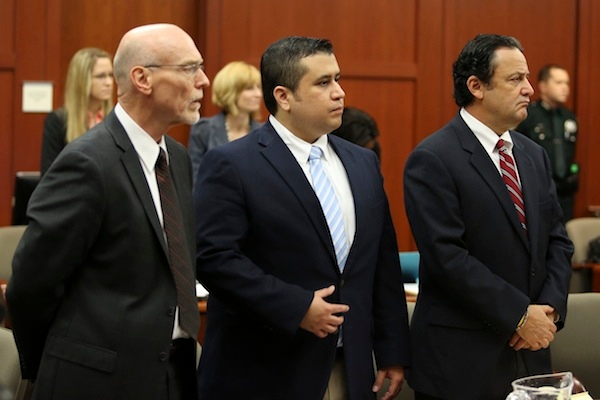There is almost nothing more emotive than a murder trial, particularly when it takes place in the United States and involves the shooting dead of a black boy on the basis of self-defence. Public sympathies are inevitably roused and divided on the basis of prejudices and predilections. That is understandable. It is understandable that disaffected black youngsters in Florida hoped to see George Zimmerman found guilty and Trayvon Martin vindicated: for all that it would do, for all that it would say.
The converse is also true. Neighbourhood activists like Zimmerman, many members of the American public who live in fear of kids on the streets, those who themselves have been victims of attacks; these people no doubt harboured a silent hope that Zimmerman would be acquitted. That too is a natural yearning. We all look at court cases and cannot help but let our experiences, our politics and our backgrounds affect what we hope will be the outcome.
That such responses are understandable and inevitable does not make them any less irrelevant to the question of what is a just verdict. Court cases are not fights between two competing social narratives where the outcome is to reflect a political injustice or a deeply-held prejudice. What the verdict says about society is a non-sequitur: the verdict says nothing about anything other than the evidence itself. In Criminal Courts such as this, the State must prove its case beyond reasonable doubt and it is that alone which a jury is directed to return a verdict upon. It is not concerned with the probabilities of ‘what happened’, nor is it concerned with the trends, contexts or root causes in relation to which the case arises.
It is therefore profoundly distasteful for the American Left to have reacted to a jury decision with immediate and universal cries of ‘miscarriage of justice’ because, to their shock, the jury’s verdict did not accord with their own gut feelings or second-hand reflections on the evidence. Of course juries sometimes make mistakes. However, to conclude from behind your own PC, without having heard any or all of the evidence, that Zimmerman is a guilty man is in fact to assert that there was in fact evidence which showed beyond reasonable doubt that he murdered Trayvon Martin. On a forensic analysis, that is a frankly extraordinary claim to make. It is tantamount to suggesting that the six female jurors deliberately sat there and did not fairly evaluate the evidence which they heard.
Those shouting about miscarriages of justice are now belatedly trying to bolster their case with the recent revelation from a juror that three of the jurors were initially in favour of convicting Zimmerman of either manslaughter or murder. They were talked round by the others. Juror B37 said that faced with this split, the jury started going through all the evidence, listening to tapes multiple times. ‘That’s why it took us so long,’ she said. This does not in any way support the view that something went awry with the process. It demonstrates precisely the strength and function of the jury: to discuss, to re-consider, to persuade, to argue. The decision is meant to be a collective honest view on the evidence reached by ordinary people. Their starting point is irrelevant, it’s the consensus, the position reached, that matters. The evidence to convict Zimmerman was found not to be there.
This case reveals a broader truth. In an age when everyone follows everything on Twitter and all views have equal access to prominence, the Rule of Law faces a hard task in standing strong against powerful public voices. On this occasion, the loudest voices were from the liberal commentariat pushing a political agenda. But for those commentators to maintain that this case was a ‘miscarriage of justice’ simply because the verdict jars with their hopes is a demeaning position for them to take, undermining the very belief in civil liberties that they purport to hold dear.
Jeremy Brier is a Barrister at Essex Court Chambers. He stood for Parliament at the 2010 General Election. Follow him on Twitter @jeremybrier






Comments